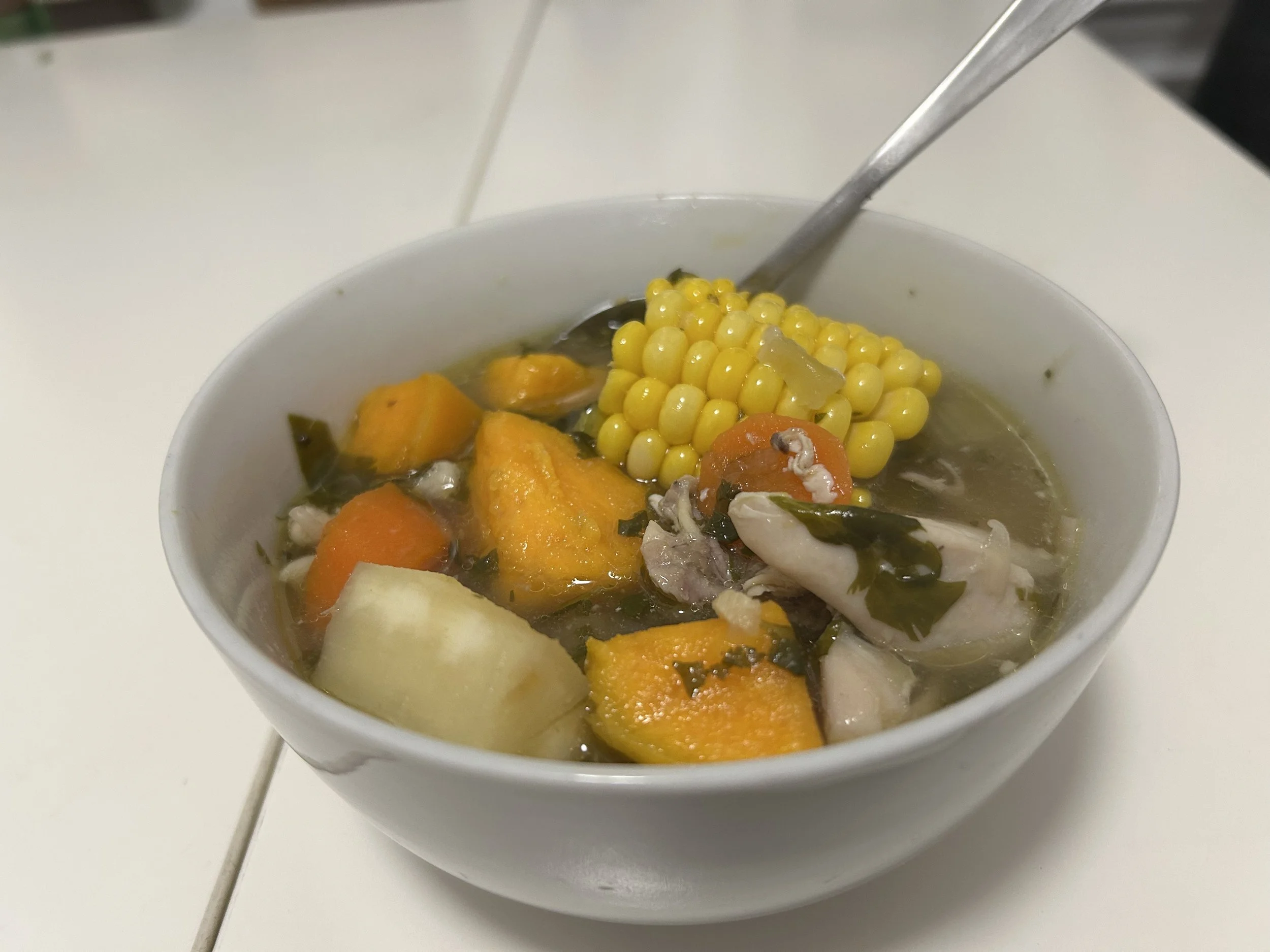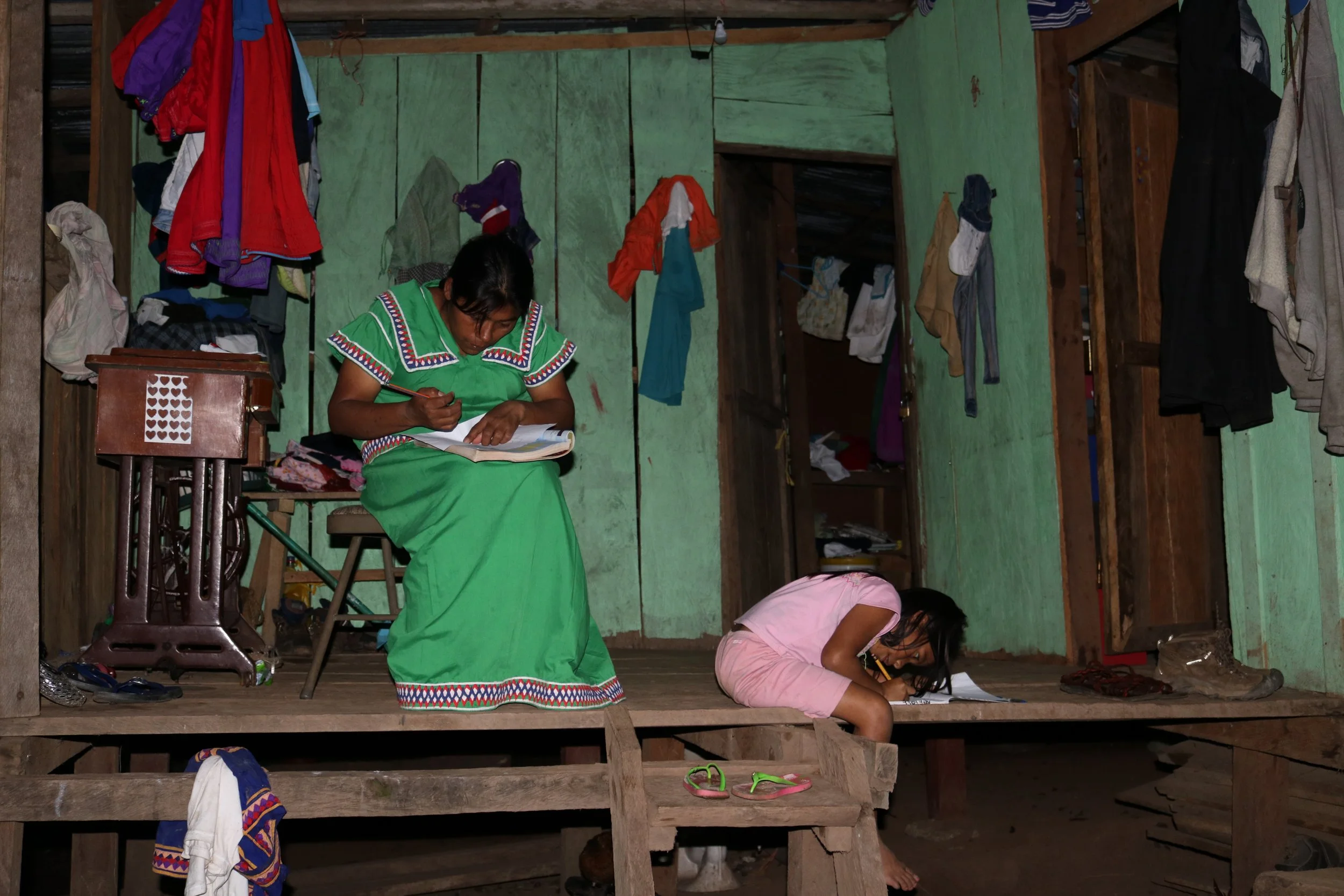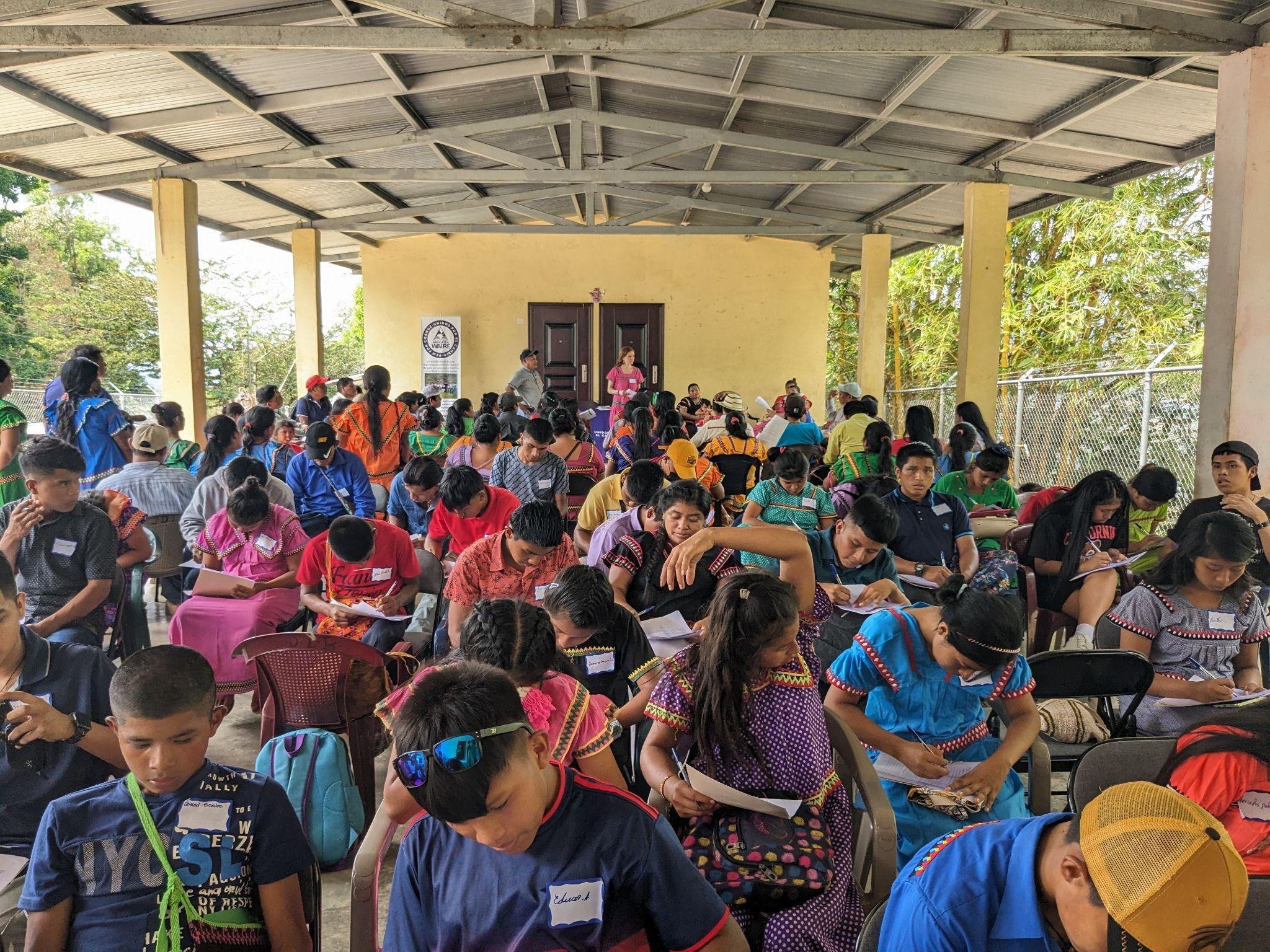This guest post was contributed by Tara Beattie, Few For Change’s Education Access Fellow. During her fellowship, Tara will be researching barriers to education in the Comarca Ngäbe-Buglé and analyzing Few for Change student data to inform future work and projects for the organization. Tara studied abroad in the Spring 2019 academic semester with the SIT Panama program, where she first learned about Few for Change and the Comarca Ngäbe-Buglé.
When I got off the truck in the Comarca Ngäbe-Buglé I had a few moments of pure panic. What was I thinking? Embarking on a solo trip to an indigenous community without knowing anyone and being only semi-confident in my Spanish skills. I stood at the bus stop wondering if I was in the right place and if I had just made a big mistake coming here. Just then, I heard my name being called from up the road and saw my host mother walking down the road. I knew everything was going to be ok. My two weeks spent in the Comarca were some of the most challenging of my time in Panama, but I am so glad for the experience and from what I learned from it.
I conducted my independent research project in Quebrada Guabo, a small community at the edge of the Comarca where many of Few for Change’s scholars live. I stayed with a host family and conducted interviews with community members throughout my time there. I wanted to compare the use of medicinal plants to pharmaceutical or ”conventional” medicine and study how medical practices are changing in the community. Through my interviews, I got to see much of the community and hear many stories from a wide range of community members.
A theme emerged throughout the course of my research: traditional knowledge is being lost. Although I was particularly interested in uses of medicine, interviewees mentioned other aspects of the culture that are being forgotten. This surprised me to hear at first, but the experience of the Ngäbe people matches that of many indigenous groups around the world. A recent Unesco study found that indigenous languages are disappearing at a rate of one every two weeks.
In many indigenous cultures, traditional knowledge is passed down orally. When I asked interviewees how they learned about using medicinal plants, everyone mentioned either a relative or another elder in the community who taught them. But now, younger generations are not as interested in learning about medicinal plants from their grandparents, especially when there is increasing access to resources from outside the Comarca. If this information doesn’t get passed on to younger generations, it gets lost because it is not written down anywhere.
The loss of traditional knowledge of medicinal plants across generations was evident in my interviews. Many people said that their parents had known much more about the medicinal plants available in the area. When I asked them if they were teaching their children about medicinal plants, it seemed like information was usually passed down when their child had children of their own, and the mothers would teach their daughters how to take care of their sick babies.
The community members also said that more people are relying more on pharmaceutical medicine and that younger generations, in particular, are not learning the cultural significance of medicinal plants. Having access to pharmaceutical medicine is important for indigenous communities, but continuing to use traditional medicinal plants can be less expensive and increase the resilience of the community by making it more self-sufficient. Access to these plants is also changing in the Comarca as changes in land use, deforestation, and increasingly frequent droughts make them harder to find. If the medicinal plants aren’t valued or looked after in the community, they will slowly disappear along with the customs around their use.
In talking with community members, many mentioned other cultural practices that are being lost. These practices include learning to make traditional dresses that women and girls wear called naguas, and chacaras -- woven bags made from plant fibers. Other endangered practices include speaking the Ngäbere language, cooking traditional foods, and more. School has become much more important to younger generations, but the schools do not incorporate traditional practices into the curriculum. In school, teachers are usually hired from outside the comarca and teach lessons in Spanish instead of the traditional Ngäbere language. One elderly woman said that she feels like she no longer has authority over her grandchildren because they now have a school education when many of the grandparents don’t. There are many factors that are contributing to this change in culture, including an increased emphasis on formal education, increased access to commodities, and culture from outside the comarca, such as food, technology, and clothing. Other factors include changes in the natural environment like less forested areas and the effects of climate change, such as drier and hotter summers.
Traditional Nagua Dresses.
One interviewee in his 60s mentioned that when he was in school they were taught that medicinal plants are the medicine of the devil and that they should no longer use them. Instead, they should use medicine from the pharmacy that is expensive and foreign to the culture. This idea of fear and mistrust of medicinal plants is being taught to younger generations as well. Many interviewees stated that the younger generations do not trust medicinal plants anymore. This is a clear example of how colonialism devalues and undermines the beliefs and culture of an indigenous society and forces its own ideas onto the people already there. It creates a dependence on external resources when there was once self-sufficiency and resilience.
During my time in the comarca, I could sense a sort of tension between school and traditional practices. I grappled with the question of how to ensure every child has access to quality education while still maintaining the cultural identity of a community. During my fellowship, I will be researching barriers to education in the comarca, including the impacts of colonial systems of power on the comarca. Few for Change is working with communities in the Comarca Ngäbe-Buglé to ensure that every child has access to education, and also recognizes that passing down traditional practices -- from medicinal plants to artisanry to language -- is critical for maintaining the sovereignty of the Ngäbe people.
A view from the mountain. The children who lived up here have to walk up and down this mountain each day to get to school.















